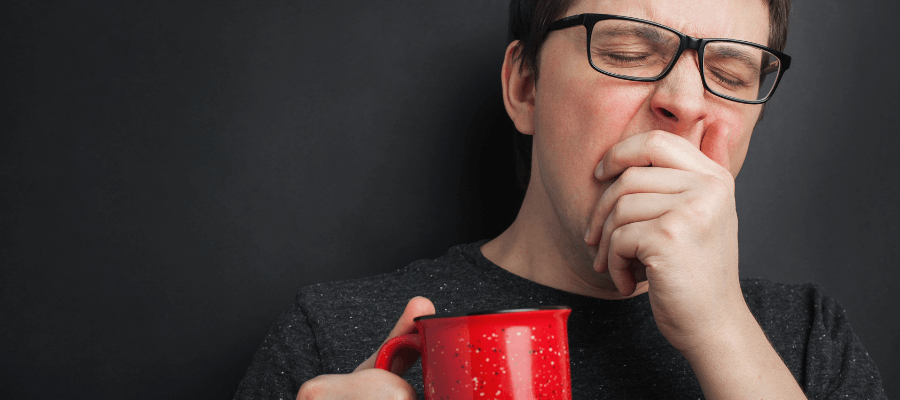We all enjoy having a cup of coffee to kickstart our mornings or stay alert during the day. After drinking our favourite caffeinated beverage, it’s not uncommon to toss and turn in bed. Drinking a second coffee cup after 3 p.m. can disrupt your sleep.
Coffee’s stimulating effects can linger in our systems and make it challenging to fall asleep. As well as exploring strategies to improve sleep after drinking coffee, we’ll discuss sleep hygiene.
1. How Coffee Affects Our Sleep Quality?

- Caffeine and Its Impact
The primary active compound in coffee, caffeine, stimulates the central nervous system. Blocking adenosine receptors in the brain promotes alertness and wakefulness. The effect can be beneficial during the day, but counterproductive when winding down and sleeping.
- Disrupting Sleep Patterns
Coffee’s stimulating effects can disrupt our sleep patterns in various ways. It can delay sleep onset, reduce sleep duration, and fragment sleep, leading to frequent awakenings during the night. Additionally, coffee can delay deep sleep, which is essential to both physical and mental recovery.
2. Strategies for Better Sleep After Drinking Coffee
To improve sleep quality after consuming coffee, consider implementing the following strategies:

1. Establish a Cutoff Time
Choose a specific time for the consumption of caffeinated beverages, ideally time in the afternoon. As a result, caffeine can be metabolised before going to bed. Experiment with different cutoff times to determine what works best for you.
2. Optimize Sleep Environment
Create a cool, calm, and dark sleeping environment in your bedroom. For blocking out painful light, use eye masks or blackout curtains. To reduce noise, consider wearing earplugs or a white noise machine.
3. Relaxation Techniques
Incorporate relaxation techniques into your bedtime routine to calm your mind and prepare your body for sleep. Engage in activities such as reading a book, taking a warm bath, or exercising gently. These activities promote relaxation and counteract coffee’s stimulating effects.
4. Mindful Breathing Exercises
Practice mindfulness breathing exercises to promote calm and relaxation. Diaphragmatic breathing is a type of deep breathing that helps you relax and sleep. Breathe in deeply through your nose and exhale slowly through your mouth. Pay attention to your breath.
5. Herbal Teas and Supplements
Consider incorporating herbal teas and natural sleep aids into your evening routine. The calming properties of chamomile tea, valerian root, lavender, and passionflower have and can help with sleep. But before taking supplements or herbal treatments, you should talk necessary with a medical doctor.
3. The Importance of Sleep Hygiene
Establishing effective sleep hygiene practices is essential for restful sleep, especially after coffee. Here are some key aspects of sleep hygiene to consider:
Consistent Sleep Schedule
Maintain a consistent sleeping schedule, by sleeping and waking up at the same time each day, even on weekends. If you do this, It can help regulate your body and promote sleep quality.
Limiting Blue Light Exposure
Minimize exposure to electronic devices such as smartphones, tablets, and computers before bed. Blue light emitted by these devices suppresses melatonin, a hormone that regulates sleep-wake cycles. Consider using blue light filters or blue light-blocking glasses in the evening.
Creating a Calming Bedtime Routine
Establish a bedtime routine that signals your body that it’s time to wind down. Engage in activities such as light stretching, reading a book, or practising mindfulness meditation. Avoid stimulating activities or discussions that can increase arousal and make it difficult to fall asleep.
4. Managing Coffee Consumption
If you to reduce the effect of coffee on your sleep, it’s essential that you keep your consumption in control. Consider the following strategies:
- Moderation and Timing
Consume coffee in moderation and remember the timing. Coffee should be consumed in moderation per day, often no more than 1-2 cups, and you should avoid drinking it before bed at night.
- Alternatives to Coffee
Explore alternatives to coffee that provide a gentle energy boost without disrupting sleep. Herbal teas like green tea or matcha contain less caffeine and offer a more balanced energy effect. Additionally, staying hydrated throughout the day can combat fatigue.
Conclusion
In conclusion, drinking coffee is a normal routine for many individuals, but it’s essential to take seriously how it will affect their ability to sleep. Caffeine’s stimulating effects can make it challenging to fall asleep and sleep restfully. By implementing strategies the tips and strategies discussed in this article, you can improve your sleep quality even after consuming coffee.
For your overall health, keep in mind that striking the right balance between drinking coffee and sleep is important.
FAQs
Why I don’t sleep after drinking coffee?
The main reason is caffeine, a stimulant in coffee. Caffeine in coffee stops you from feeling asleep by blocking the adenosine receptors in your brain. However, everyone’s sensitivity to caffeine is different, so some people experience its effects for longer periods, disrupting their sleep patterns. It’s worth considering cutting back on caffeine intake or gradually reducing it to improve your sleep quality.
Can exercise help counteract coffee’s effects on sleep?
Regular exercise has numerous benefits for sleep, including improving sleep quality. Engaging in physical activity earlier in the day can help regulate your sleep-wake cycle and promote better sleep. However, it’s recommended to avoid vigorous exercise close to bedtime, as it may stimulate.
Are there any natural remedies to help you sleep after drinking coffee?
Yes, there are natural remedies that can help promote better sleep after consuming coffee. Some options include herbal teas such as chamomile or valerian root, relaxation techniques like deep breathing or meditation, and establishing a consistent bedtime routine. It’s essential to find what works best for you through trial and observation.
How long does the coffee effect last? Or how long does caffeine last?
Caffeine effects can vary depending on factors such as metabolism and individual sensitivity. Half of the caffeine you consume will typically leave your body in 5 to 6 hours.
Can decaf coffee disrupt sleep?
Decaf coffee contains significantly less caffeine than regular coffee but still contains a small amount. While it may have a lesser impact on sleep than caffeinated coffee, it can still affect caffeine sensitive individuals. It’s best to monitor your response to decaf coffee and adjust accordingly.

